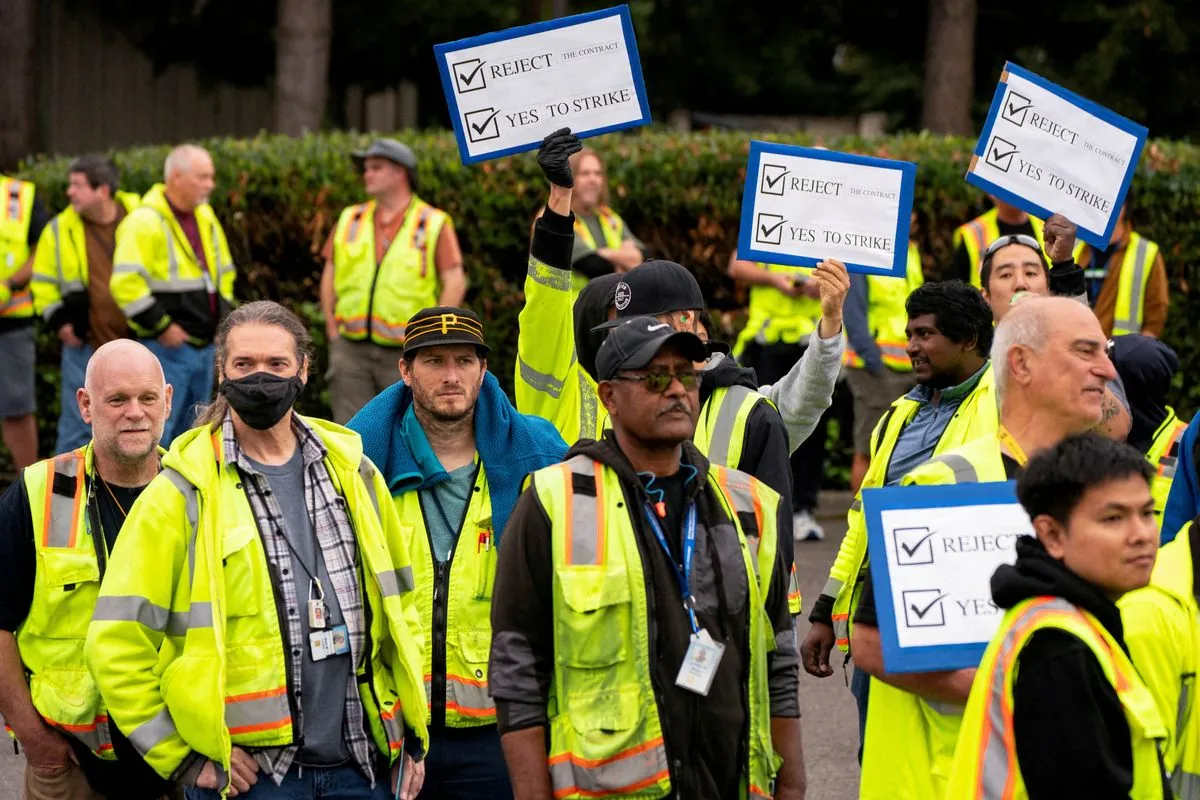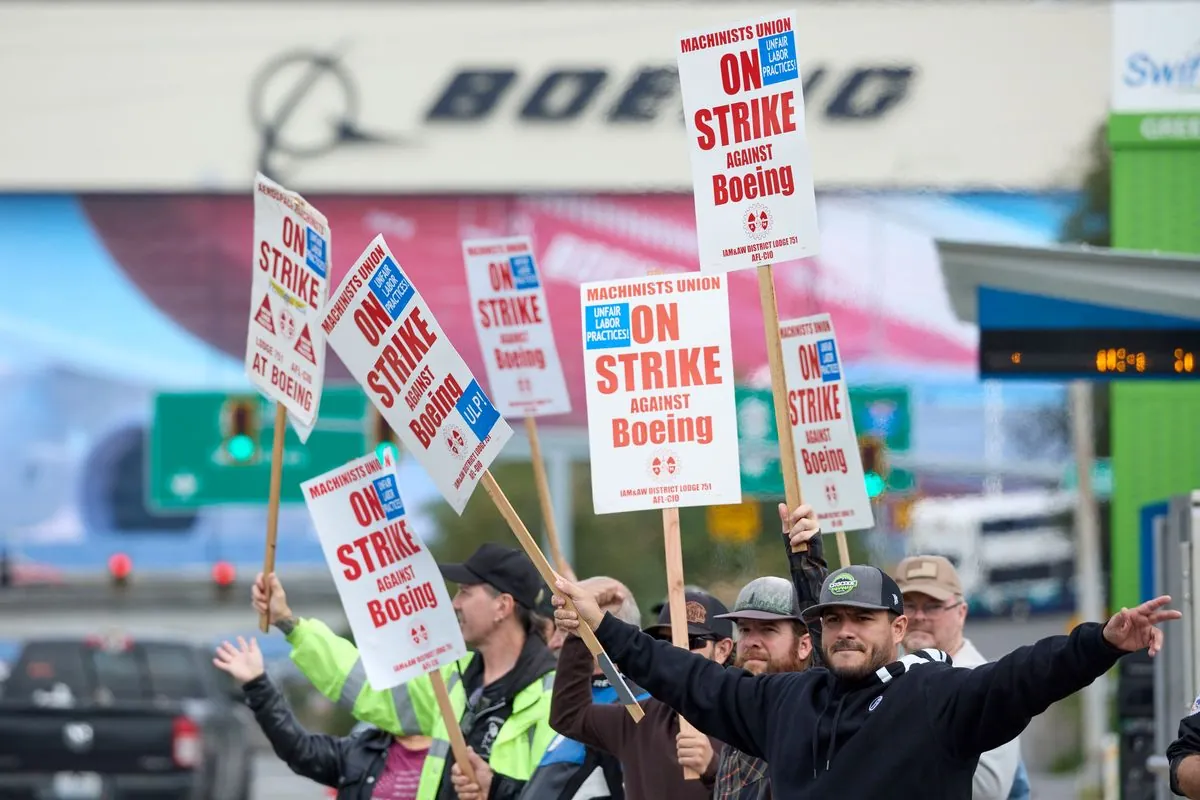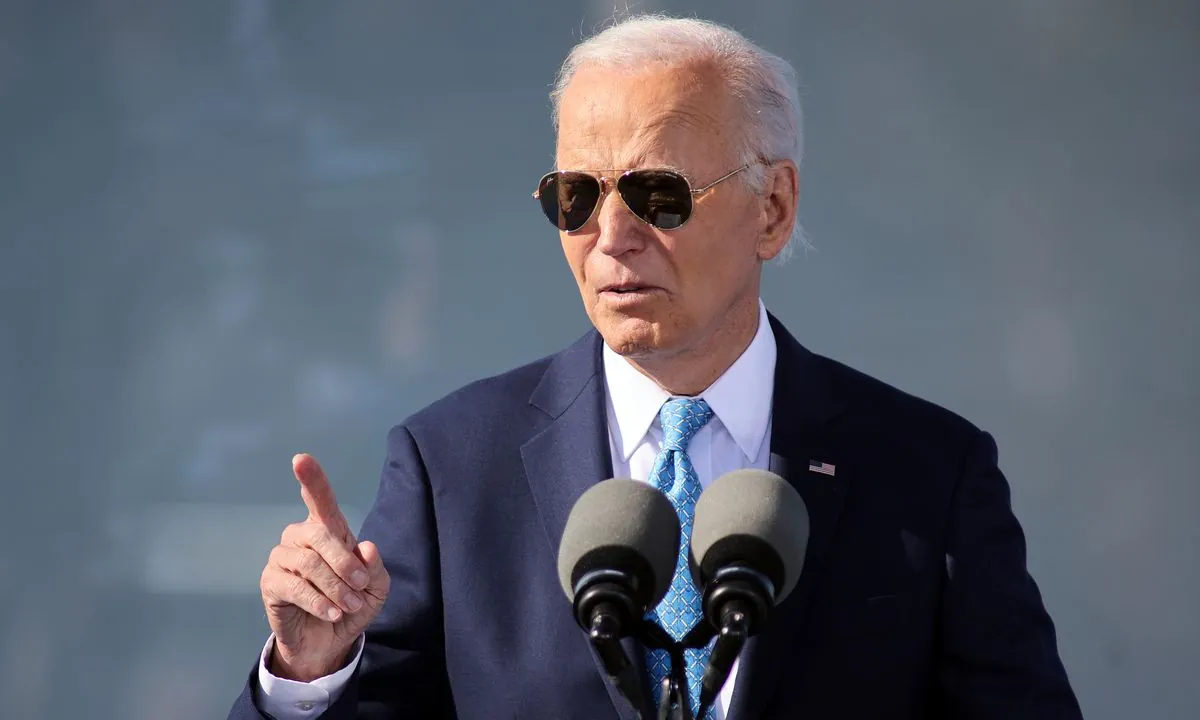Boeing Implements Cost-Cutting Measures Amid Workers' Strike
Boeing freezes hiring and considers furloughs as 33,000 workers strike over contract disputes. The company faces financial challenges while workers demand higher pay and restored benefits.

Boeing, one of the world's largest aerospace manufacturers, has implemented a series of cost-cutting measures in response to a strike by 33,000 workers that began three days ago. The company, founded in 1916 in Seattle, Washington, is facing significant challenges as it attempts to navigate this labor dispute while grappling with ongoing financial difficulties.
The strike commenced after workers, represented by the International Association of Machinists and Aerospace Workers, rejected a contract offer that included a 25% pay raise over four years. This labor action has forced Boeing to take immediate steps to conserve cash, including a hiring freeze across all levels, pausing pay increases for promotions, and restricting non-essential travel.
Brian West, Boeing's Chief Financial Officer, outlined these measures in a memo to employees, stating that the company is also considering temporary furloughs for many employees, managers, and executives in the coming weeks. The strike poses a significant threat to Boeing's recovery efforts, as the company has been struggling financially since 2019, having lost more than $25 billion during this period.

The current labor dispute highlights the ongoing tension between Boeing's management and its workforce. Workers are demanding higher pay raises, with some calling for increases totaling at least 40%, and the restoration of annual bonuses that the company proposes to eliminate. These bonuses, which ranged from $3,000 to $5,000 per year, have become a significant point of contention.
Nancie Browning, a materials-management specialist at Boeing for over 17 years, expressed her frustration with the company's offer, stating that without the annual bonuses, the proposed pay increase is effectively much lower than advertised. This sentiment is echoed by many workers who feel that their contributions to the company's success are not being adequately recognized.
"We want our pension back. We just keep losing and we never gain, while the people at the top just get more and more money. Boeing has done really good for me and my family, but these last years have been hard."
The strike is expected to have a significant impact on Boeing's operations, particularly in delaying the delivery of new planes, which are a crucial source of cash for the company. This comes at a time when Boeing is already facing financial challenges, having burned through $4.3 billion in the second quarter of 2024 alone.
As negotiations continue, with representatives from both sides scheduled to meet with federal mediators, the outcome of this labor dispute will likely have far-reaching consequences for Boeing, its workforce, and the broader aerospace industry. The company's ability to balance the demands of its workers with its financial obligations will be crucial in determining its future trajectory in an increasingly competitive global market.


































